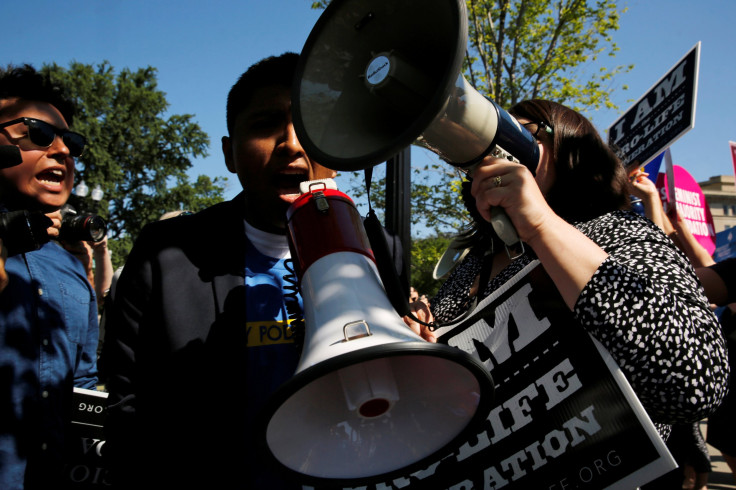Abortion Under Trump: New Arkansas Law Allows Husband's Decision To Trump Wife's Choice Of Abortion, Even In Cases Of Rape And Incest

A new law known as Act 45 or the Unborn Child Protection from Dismemberment Act signed into law last week by Arkansas Governor Asa Hutchinson bans women in the state from terminating a pregnancy in the second trimester using dilation and evacuation (D&E) — the most common, and the safest, procedure used to carry abortions after 14 weeks of pregnancy. The controversial law makes it a felony to perform D&E, which the act refers to as "dismemberment abortion," even if the pregnancy resulted from rape or incest.
As a result of the law, most second trimester abortions will be banned, as an estimated 95 percent of abortions during this period in the U.S. are carried out through D&E. It also allows husbands to sue their wife's doctor for civil damages if the spouse is scheduled to have an abortion. Apart from husbands being able to seek injunctive relief, under the new law, even parents can sue their daughter's doctor if the girl is a minor and has an abortion.
Doctors who carry out the procedure can now face a fine of up to $10,000 or up to a six-year prison sentence in the state.
State Representative Andy Mayberry, who is also the president of Arkansas Right to Life, a subsidiary of America's largest pro-life organisation, the National Right to Life Committee, besides co-sponsoring the bill said that: "We've tried to account for all the worst case scenarios,” and also called D&E a “gruesome, barbaric procedure”, adding that the routine procedure “is one that no civilised society should embrace.”
The American Civil Liberties Union of Arkansas has pledged to challenge the legislation before it starts to be executed this summer.
"The law has disturbing provisions that would allow a parent, legal guardian, even a perpetrator of rape or incest, to attempt to enjoin an abortion. The law enables a putative father or legal guardian to attempt to interfere with a woman's constitutional right to terminate a pregnancy. It is clearly unconstitutional," Bettina Brownstein, an attorney working with the ACLU, reportedly said.
© Copyright IBTimes 2025. All rights reserved.






















